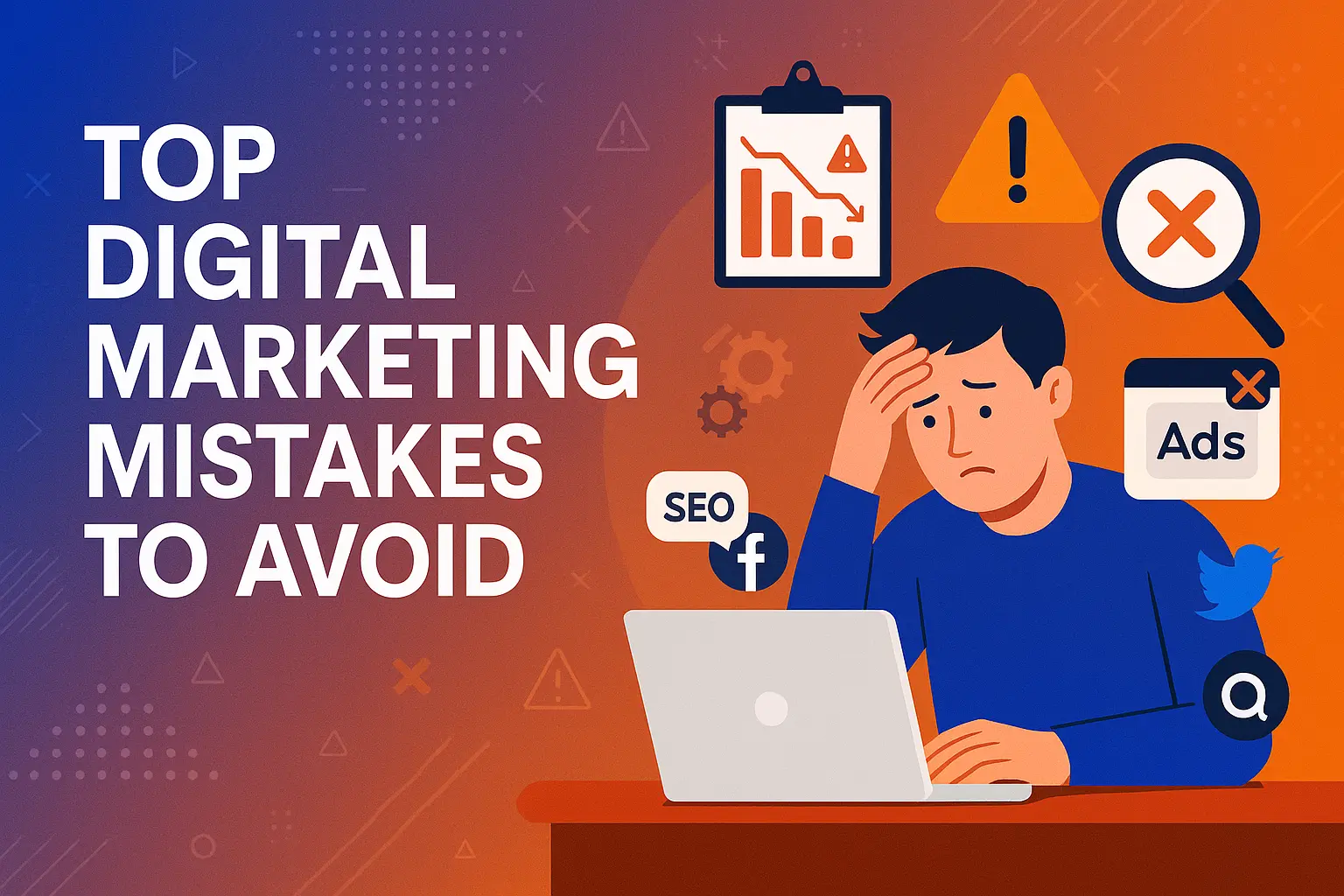When it comes to searching online, most people instinctively turn to Google. Whether it’s looking up directions, comparing product reviews, or finding medical information, Google has become the go-to gateway to the internet. But what many don’t realise is that there’s an entire ecosystem of search engines beyond Google — including global giants, region-specific leaders, and platforms tailored for privacy, visual content, shopping, and academic research.
Whether you’re a digital marketer, business owner, researcher, or simply a curious internet user, this guide provides a detailed overview of the top 50 search engines, explaining how they work, why they matter, and when to use them.
Why Try Other Search Engines?
It’s a valid question – if Google delivers reliable results, what’s the need to look elsewhere?
There are several compelling reasons:
- Varied search algorithms – Different engines index and rank content differently, which can reveal new or less filtered information.
- Privacy concerns – Search engines like DuckDuckGo and StartPage prioritise user anonymity and avoid data tracking.
- Specialised functionality – Some platforms are built specifically for videos, academic research, or product discovery, offering more relevant results in those categories.
- Regional relevance – In markets like China, Russia, and South Korea, local engines dominate and provide better localisation.
- Marketing opportunities – Alternatives such as Bing or Amazon may offer lower competition and more precise targeting for advertisers.
Understanding the broader search landscape not only improves the quality of information you access but also helps businesses optimise their digital strategies more effectively.
Top Search Engines
Let’s begin with ten of the most influential search engines, each widely used around the world or offering distinct advantages based on user needs, regions, or functionality.
1. Google
Undoubtedly the most dominant search engine globally, Google processes over 8 billion searches every day. Its strength lies in delivering highly relevant results through advanced algorithms, mobile-first indexing, and seamless integration across services like Gmail, Maps, YouTube, and Google Shopping. For any business with an online presence, optimising for Google remains essential to achieve visibility and traffic.
2. Amazon Search
More than just a marketplace, Amazon functions as the world’s largest product-focused search engine. Millions of users begin their shopping journey directly on Amazon rather than traditional search engines. For eCommerce brands and sellers, optimising product listings for Amazon’s A9 algorithm is critical for increasing visibility and conversions.
3. YouTube Search
As video continues to dominate digital content consumption, YouTube has established itself as a powerful search engine. With billions of global users, it is a go-to platform for tutorials, reviews, entertainment, and educational content. Brands and creators looking to grow must understand YouTube SEO strategies, including keyword usage, watch time, and click-through optimisation.
4. Bing
Owned by Microsoft, Bing remains a relevant alternative to Google, particularly as it powers search results in Microsoft Edge and other Windows-integrated environments. While its market share is smaller, Bing still attracts a substantial user base. Additionally, marketers often find Bing Ads to be more cost-effective due to lower competition.
5. Yahoo!
Though no longer at its peak, Yahoo! continues to operate as a search engine, primarily powered by Bing. It maintains user engagement through its integrated content services such as news, email, and finance. Yahoo still holds value, particularly among long-time users and certain international markets.
6. DuckDuckGo
As a privacy-first search engine, DuckDuckGo offers anonymous browsing with no cookies, tracking, or personalised results. It’s a popular choice for users who value neutrality and unfiltered access to web content.
7. Ecosia
Ecosia is changing the way people search by using its ad revenue to fund tree-planting initiatives around the world. Built on Bing’s technology, it appeals to environmentally conscious users who want their searches to contribute to global reforestation.
8. Yandex
Yandex is the dominant search engine in Russia and widely used across Eastern Europe. It’s particularly relevant for those managing international content, targeting Russian-speaking audiences, or doing business in that region. Yandex also offers advanced tools such as AI-driven image search and translation services.
9. Baidu
Baidu is China’s most widely used search engine, controlling more than 70% of the market. Since Google is blocked in mainland China, Baidu serves as the primary gateway to web content, integrating features like music streaming, forums, maps, and AI-enhanced search, all optimised for Simplified Chinese and local regulations.
10. AOL Search
Once a major internet brand, AOL Search continues to operate, primarily serving legacy users. Now powered by Bing, it remains functional as part of AOL’s broader ecosystem of email, news, and content services.
40 Other Search Engines You May Not Have Heard Of
Organized by category for easy understanding:
Privacy-Focused Search Engines
- For users who value anonymity and data protection, these search engines offer privacy-first alternatives to mainstream platforms:
- StartPage – Delivers Google search results without storing personal data or tracking user activity.
- Brave Search – Developed by the team behind the Brave browser, this engine offers an independent index and a strong commitment to user privacy.
- Swisscows – A privacy-centric engine that avoids storing user data, with a focus on safe, family-friendly results.
- MetaGer – An open-source metasearch engine from Germany that combines results from multiple sources while maintaining encrypted, anonymous searches.
- Infinity Search – A modern, open-source engine designed around transparency, ethical data practices, and user privacy.
Region-Specific Search Engines
- Certain search engines dominate specific regions, catering to local language, culture, and user behaviour:
- Naver and Daum – South Korea’s primary search platforms, offering rich integrations with local services like blogs, news, and shopping.
- Sogou and Shenma – Widely used in China, especially known for their voice search technology and mobile-first functionality.
- Seznam – The most popular search engine in the Czech Republic, offering native content and services.
- Rediff – One of India’s earliest internet companies, still operating a search function alongside its news and email services.
- SAPO – A Portuguese-language portal that combines search with local news, email, and multimedia content.
Academic and Research-Focused Search Engines
- Google Scholar – A reliable platform for accessing peer-reviewed academic journals, theses, conference papers, and citations across various fields of study.
- WolframAlpha – A computational search engine that provides direct answers, calculations, and data-driven insights across mathematics, science, finance, and more.
- Semantic Scholar, BASE, and RefSeek – These engines are tailored for researchers, students, and academic professionals, offering access to millions of scholarly documents, preprints, and academic databases.
- Microsoft Academic – Previously a valuable academic search resource, it provided curated scholarly information before being discontinued in 2022.
Image and Visual Search Engines
- Pinterest Search – A discovery tool designed around visuals, allowing users to explore creative content related to lifestyle, fashion, food, home decor, and more.
- Flickr, Unsplash, and Pixabay – Popular platforms offering free, high-resolution images suitable for blogs, marketing materials, design projects, and content creation.
- Vimeo and Dailymotion – Video-hosting platforms with their own internal search engines, ideal for exploring independent films, tutorials, and creative media content.
Product and Shopping-Oriented Search Engines
- Google Shopping – Enables users to search, compare, and discover products across thousands of online stores and eCommerce platforms.
- eBay Search – Designed for discovering auctions, second-hand goods, and unique niche products listed by global sellers.
- Alibaba Search – Primarily focused on B2B transactions, it helps buyers source products from manufacturers, mainly across Asia.
- PriceGrabber – A dedicated comparison-shopping engine that helps users find the best deals on consumer electronics, clothing, appliances, and more.
Metasearch and Aggregator Engines
- Dogpile, WebCrawler, Info.com, and Yippy – These engines aggregate results from multiple major search engines, offering a broader view of the web.
- Boardreader – Specialised in indexing forums, message boards, and community discussions, making it useful for niche research and sentiment analysis.
- Peekier – Displays clean previews of websites in search results, allowing users to review content before visiting.
- Gibiru, Disconnect Search, and Search Encrypt – Focused on privacy and anonymity, these engines provide encrypted and untracked search experiences.
For many users, Google may be the default — and often, it does the job well. However, when you’re looking for greater privacy, seeking region-specific information, conducting in-depth research or detailed product comparisons, or simply exploring different corners of the web, it’s worth expanding your options.
This curated list of the top 50 search engines offers new ways to search smarter, access diverse results, and stay informed in a digital ecosystem that extends far beyond Google.
Top 50 Search Engine List
Here is a list of the top 50 search engines accessible according to location and device permission.
| Google Search Engine | Ask.com Search Engine | Search Encrypt Search Engine | LinkedIn Search Engine | Mojeek Search Engine |
| Microsoft Bing Search Engine | Alexa Search Engine | Swiss cows Search Engine | Kidrex Search Engine | TinEye Search Engine |
| Yahoo Search Engine | AltaVista Search Engine | Wiki Search Engine | Boardreader Search Engine | Escobedo Search Engine |
| Baidu Search Engine | Lycos Search Engine | SlideShare Search Engine | Scribd Search Engine | MetaCrawler Search Engine |
| Yandex Search Engine | Netscape Search Engine | Twitter Search Engine | Blog Search Engine | Web crawler Search Engine |
| DuckDuck Go Search Engine | Seznam Search Engine | Facebook Search Engine | Wolfram Alpha Search Engine | Infospace Search Engine |
| Ecosia Search Engine | Naver Search Engine | Pinterest Search Engine | Crunchbase Search Engine | Smarter Search Engine |
| YouTube Search Engine | Sogou Search Engine | Reddit Search Engine | Flickr Search Engine | Google Scholar Search Engine |
| AOL Search Engine | Qwant Search Engine | Gigablast Search Engine | Built with Search Engine | Info.com Search Engine |
| Amazon Search Engine | Startpage Search Engine | Gibiru Search Engine | Google Scholar Search Engine | Goodsearch Search Engine |
Frequently Asked Questions
1. What is the most-used search engine in the world?
Google is the most widely used search engine, processing over 90% of global search queries across web, mobile, and smart devices.
2. Are there any search engines better than Google?
While Google leads in scale and speed, engines like DuckDuckGo (for privacy), YouTube (for video), and Bing (for Microsoft integrations) offer strong alternatives based on user intent.
3. Which search engine does not track users?
DuckDuckGo, StartPage, and Brave Search are known for not storing search history or user data, offering a private browsing experience.
4. What is the best search engine for academic research?
Google Scholar, Semantic Scholar, and BASE are top choices for accessing peer-reviewed journals, theses, and academic databases.
5. What is the difference between a search engine and a browser?
A search engine helps locate information on the web (like Google or Bing), while a browser (like Chrome or Firefox) is the tool used to access websites.



